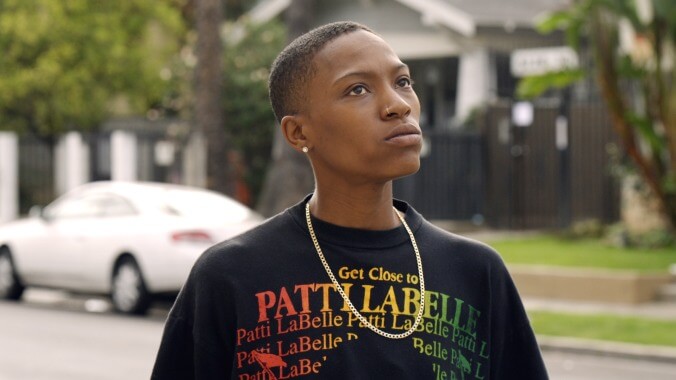Lena Waithe’s search for an “authentic” Black experience muddles her Twenties

Among Black creatives and their intended audience, there’s an ongoing debate about whether there is such a thing as being “authentically Black,” and if so, how that should be depicted onscreen. From the way African Americans talk (and code-switch) to how they wear their hair, to the cultural fact that sweet potato pie is the only pie that exists during the holidays, there is a distinctness, beauty, and joy Black people possess. Despite how the media refers to African Americans (see “the Black vote”), they are not monolithic, and because of class, gender, sexuality, location and proximity to whiteness, there are no real rules to being authentically Black. Capturing that identity is a balancing act, teetering from creating unrecognizable protagonists that are essentially just white people dipped in chocolate to characters rocking “Woke AF” tee-shirts with dialogue that essentially screams, “I’m Black, y’all. I’m Blackety Black and I’m Black y’all.”
With her film Queen & Slim and her new BET comedy, Twenties, Lena Waithe shows she hasn’t quite mastered that balancing act either. Based on Waithe’s 2013 web series of the same name, this semi-autobiographical, handsomely directed series centers on Hattie (Jonica T. Gibbs), a cocky yet endearing know-it-all who moves to Los Angeles from the Midwest to live out her dream of becoming Hollywood’s next big writer. Of course, Hattie can’t do it alone—her straight best friends, studio exec Marie (Christina Elmore) and yogi turned aspiring actress Nia (Gabrielle Graham) are always there to save Hattie from herself, hype her up, and be the much-needed voice of reason. The hilarious Kym Whitley rounds out the cast as Hattie’s mama.
Twenties’ premise is intriguing, as it’s still rare for a TV show to center on a Black butch stud, let alone open with a lesbian sex scene. (More, please.) This isn’t BET’s version of The L Word, either—aside from the “straight woman” Hattie can’t leave alone or the other women she has sex with, her life is pretty much surrounded by straight folks. That decision is made all the more interesting by Hattie being out and proud. Sadly, those compelling elements get drowned out by Waithe’s incessant need to remind you that this is a Black AF show with folks doing Black AF things.
For starters, Waithe may have named Hattie after Hattie McDaniel, the Gone With The Wind actress who, in 1940, became the first Black woman to win an Oscar. Not only that, but she also named Hattie’s boss Ida B. (Sophina Brown), a TV showrunner, after the iconic Black activist Ida B. Wells. Just in case you needed more evidence that these people aren’t white, Hattie rocks T-shirts emblazoned with the names of Black cultural icons such as Whitney Houston and Patti LaBelle. There’s also a car scene in which Hattie, Marie, and Nia break out in song to “Exhale (Shoop Shoop)” from the Waiting To Exhale soundtrack. Even more glaringly, the opening music for the pilot loudly blasts the words, “Melanin, I got melanin!” On the other end of the spectrum are confounding statements like Hattie observing that they’re the only Black people in the park watching All About Eve (Waithe’s real-life favorite movie) because “Black people don’t like to be outside.” It ignores the fact that playing in the park until the street lights come on and cookouts are also a part of Black people’s lives.








































